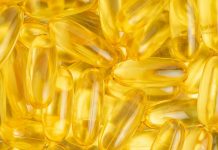
Stress is a ubiquitous aspect of modern life, and managing it is crucial for our mental and physical well-being.
Traditionally, stress management strategies focus on exercise, personal hobbies, meditation, or mindfulness.
However, recent research from APC Microbiome Ireland suggests that dietary changes, specifically increased consumption of fermented foods and fibre, may also play a significant role in lowering stress levels.
The Gut-Brain Axis and Stress
Over the past decade, researchers have come to understand the profound impact diet has on mental health, with some evidence suggesting that a healthy diet may even reduce the risk of many common mental illnesses.
One hypothesis for this connection lies in the gut-brain axis, a system that enables continuous communication between our brain and gut microbiome (the trillions of bacteria living in our gut).
This interaction affects various body functions such as digestion, appetite, and cognitive processes. Moreover, the emotional and cognitive centres of our brain are closely linked to our gut.
While previous research has demonstrated a link between stress, behavior, and our microbiome, it remained unclear whether modifying the diet and, consequently, the microbiome could significantly affect stress levels.
Testing the ‘Psychobiotic’ Diet
Our team carried out a study to answer this question. We enlisted 45 healthy adults with relatively low-fibre diets and split them into two groups, each following a different diet for four weeks.
Half of the participants were assigned a ‘psychobiotic’ diet, a regimen including prebiotic and fermented foods linked to better mental health.
This diet featured daily servings of fruits, vegetables high in prebiotic fibres, grains, legumes, and fermented foods. The other half received general dietary advice based on the healthy eating food pyramid.
Stress Reduction and Improved Sleep
Participants who followed the psychobiotic diet reported feeling less stressed than those who adhered to the control diet. A direct correlation between the adherence to the diet and perceived stress levels was also observed.
The stricter the adherence to the psychobiotic diet, the greater the reduction in perceived stress levels.
Both groups reported improvements in sleep quality, but those on the psychobiotic diet reported more significant improvements.
The diet seemed to cause only subtle changes in the gut microbiome’s composition and function, but significantly altered the level of certain key chemicals produced by these microbes, which could explain the decrease in perceived stress levels.
Limitations and Future Research
While our results are encouraging, some limitations exist.
The small sample size due to the pandemic, the study’s short duration, potential errors and biases in daily diet recording, and the possible bias of participants guessing their diet group all factor into the results.
Furthermore, the study only examined healthy individuals, leaving open the question of the diet’s effect on less healthy individuals.
Despite these limitations, our research suggests that specific diets, like the psychobiotic diet, could potentially be used to reduce perceived stress levels and contribute to long-term mental health protection by targeting gut microbes.
Long-term studies and trials with individuals suffering from stress-related disorders, such as anxiety and depression, could yield additional insights into this exciting new field of research.
So, if you’re feeling stressed, remember your meal choices might help. Including more fibre and fermented foods in your diet for a few weeks might help you manage your stress levels better.
Follow us on Twitter for more articles about this topic.
Copyright © 2023 Scientific Diet. All rights reserved.








